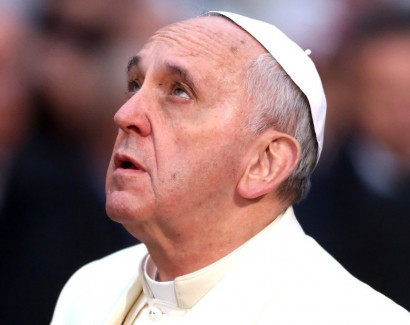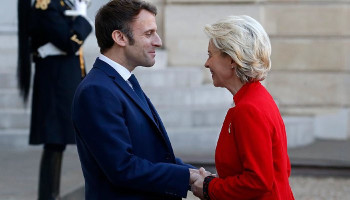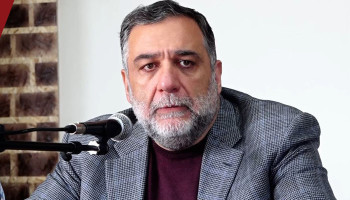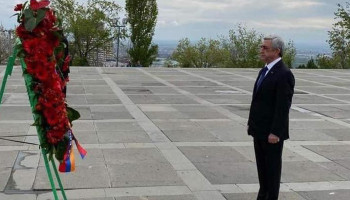The war against Pope Francis
 Pope Francis is one of the most hated men in the world today. Those who hate him most are not atheists, or protestants, or Muslims, but some of his own followers. Outside the church he is hugely popular as a figure of almost ostentatious modesty and humility. From the moment that Cardinal Jorge Bergoglio became pope in 2013, his gestures caught the world’s imagination: the new pope drove a Fiat, carried his own bags and settled his own bills in hotels; he asked, of gay people, “Who am I to judge?” and washed the feet of Muslim women refugees.
This mixture of hatred and fear is common among the pope’s adversaries. Francis, the first non-European pope in modern times, and the first ever Jesuit pope, was elected as an outsider to the Vatican establishment, and expected to make enemies. But no one foresaw just how many he would make. From his swift renunciation of the pomp of the Vatican, which served notice to the church’s 3,000-strong civil service that he meant to be its master, to his support for migrants, his attacks on global capitalism and, most of all, his moves to re-examine the church’s teachings about sex, he has scandalised reactionaries and conservatives. To judge by the voting figures at the last worldwide meeting of bishops, almost a quarter of the college of Cardinals – the most senior clergy in the church – believe that the pope is flirting with heresy. The crunch point has come in a fight over his views on divorce. Breaking with centuries, if not millennia, of Catholic theory, Pope Francis has tried to encourage Catholic priests to give communion to some divorced and remarried couples, or to families where unmarried parents are cohabiting. His enemies are trying to force him to abandon and renounce this effort. Advertisement Since he won’t, and has quietly persevered in the face of mounting discontent, they are now preparing for battle. Last year, one cardinal, backed by a few retired colleagues, raised the possibility of a formal declaration of heresy – the wilful rejection of an established doctrine of the church, a sin punishable by excommunication. Last month, 62 disaffected Catholics, including one retired bishop and a former head of the Vatican bank, published an open letter that accused Francis of seven specific counts of heretical teaching. To accuse a sitting pope of heresy is the nuclear option in Catholic arguments. Doctrine holds that the pope cannot be wrong when he speaks on the central questions of the faith; so if he is wrong, he can’t be pope. On the other hand, if this pope is right, all his predecessors must have been wrong. The question is particularly poisonous because it is almost entirely theoretical. In practice, in most of the world, divorced and remarried couples are routinely offered communion. Pope Francis is not proposing a revolution, but the bureaucratic recognition of a system that already exists, and might even be essential to the survival of the church. If the rules were literally applied, no one whose marriage had failed could ever have sex again. This is not a practical way to ensure there are future generations of Catholics.But Francis’s cautious reforms seem to his opponents to threaten the belief that the church teaches timeless truths. And if the Catholic church does not teach eternal truths, conservatives ask, what is the point of it? The battle over divorce and remarriage has brought to a point two profoundly opposed ideas of what the church is for. The pope’s insignia are two crossed keys. They represent those Jesus is supposed to have given St Peter, which symbolise the powers to bind and to loose: to proclaim what is sin, and what is permitted. But which power is more important, and more urgent now? Advertisement The present crisis is the most serious since the liberal reforms of the 1960s spurred a splinter group of hardline conservatives to break away from the church. (Their leader, the French Archbishop Marcel Lefebvre, was later excommunicated.) Over the past few years, conservative writers have repeatedly raised the spectre of schism. In 2015, American journalist Ross Douthat, a convert to Catholicism, wrote a piece for the Atlantic magazine headlined Will Pope Francis Break the Church?; a Spectator blogpost by the English traditionalist Damian Thompson threatened that “Pope Francis is now at war with the Vatican. If he wins, the church could fall apart.” The pope’s views on divorce and homosexuality, according to an Archbishop from Kazakhstan, had allowed “the smoke of Satan” to enter the church. The Catholic church has spent much of the past century fighting against the sexual revolution, much as it fought against the democratic revolutions of the 19th century, and in this struggle it has been forced into the defence of an untenable absolutist position, whereby all artificial contraception is banned, along with all sex outside one lifelong marriage. As Francis recognises, that’s not how people actually behave. The clergy know this, but are expected to pretend they don’t. The official teaching may not be questioned, but neither can it be obeyed. Something has to give, and when it does, the resulting explosion could fracture the church. Appropriately enough, the sometimes bitter hatreds within the church – whether over climate change, migration or capitalism – have come to a head in a gigantic struggle over the implications of a single footnote in a document entitled The Joy of Love (or, in its proper, Latin name, Amoris Laetitia). The document, written by Francis, is a summary of the current debate over divorce, and it is in this footnote that he makes an apparently mild assertion that divorced and remarried couples may sometimes receive communion. With more than a billion followers, the Catholic church is the largest global organisation the world has ever seen, and many of its followers are divorced, or unmarried parents. To carry out its work all over the world, it depends on voluntary labour. If the ordinary worshippers stop believing in what they are doing, the whole thing collapses. Francis knows this. If he cannot reconcile theory and practice, the church might be emptied out everywhere. His opponents also believe the church faces a crisis, but their prescription is the opposite. For them, the gap between theory and practice is exactly what gives the church worth and meaning. If all the church offers people is something they can manage without, Francis’s opponents believe, then it will surely collapse. |



















